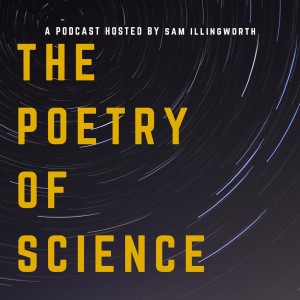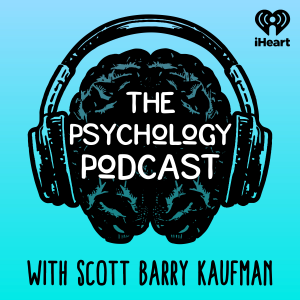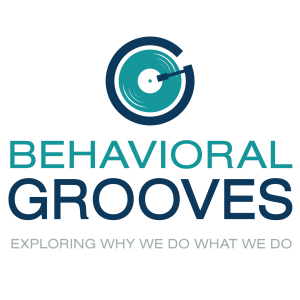In this episode, we spoke with Dr. Michael Hallsworth PhD, the Managing Director of the North American Behavioral Insights Team. We met up with him at his office in Brooklyn which gave the audio a bit of an echo-chamber vibe.
Michael was an early member of the UK’s Behavioral Insights Team. Along with Paul Dolan, Dominic King, Ivo Vlaev, and David Halpern, Michael created MINDSPACE in 2009 and later, the EAST model. Both are mnemonic tools for remembering key elements of behavioral science.
To ensure that everyone is comfortable with the MINDSPACE and EAST models, we recommend this link to an overview from the Behavioural Insights Team: https://www.behaviouralinsights.co.uk/wp-content/uploads/2015/07/BIT-Publication-EAST_FA_WEB.pdf. The paper is brief, informative, easy to read and offers one of the best explanations on how to apply behavioral insights we’ve read. However, in quick recap form, the mnemonic MINDSCAPE stands for:
Messenger. We are heavily influenced by who communicates information
Incentives. Our responses to incentives are shaped by predictable mental shortcuts such as strongly avoiding losses
Norms. We are strongly influenced by what others do
Defaults. We “go with the flow” of pre-set options
Salience. Our attention is drawn to what is novel and seems relevant to us
Priming. Our actions are often influenced by sub-conscious cues
Affect. Our emotional associations can powerfully shape our behaviors
Commitments. We seek to be consistent with our public promises and reciprocate acts
Ego. We act in ways that make us feel better about ourselves
EAST is an updated and simplified version of MINDSPACE. EAST is a powerful tool because it is so easy to remember and it stands for:
Easy. Harness the power of defaults; reduce the ‘hassle factor’ of taking up a service; simplify messages
Attractive. Attract attention; design rewards and sanctions for maximum effect
Social. Show that most people perform the desired behavior; leverage the power of networks; encourage people to make a commitment to others
Timely. Prompt people when they are likely to be most receptive; consider the immediate costs and benefits; help people plan their response to events
Michael is a relentless researcher. He never fatigues of testing new ideas or recycling old ones and he’s open about situations where replications of his earlier studies worked well and not so well. His candidness about his successes and failures, when it comes to replicating results, is a breath of fresh air in the scientific community. To highlight this fact, we discussed how changes to the format of the letter used by the British tax authority to collect taxes from delinquents generated great results. However, when he applied the same approach to collect dues in Albuquerque, New Mexico with a different audience, the formality effect failed miserably.
Michael shared his observations on framing, political systems, confirmation bias and motivated reasoning. All are prominent in the world today, increasing our need to pay attention to them and to be aware of their effects on our decisions and behaviors.
He also shared two tips on how to prepare to conduct a study. He teed these two up in a fashion that was highly intentional, so we recommend following his direction if you are interested in conducting a study of your own.
- Pay attention to details as the human condition (and our world) is complex
- Ask for written predictions from the experts prior to collecting data – hindsight bias is a powerful effect
We also discussed how Michael came to play piano “quite late” as a child because, unlike many kids who are thrown into piano lessons, he volunteered to study the instrument. Quite simply, he loved music and still does. He still plays a bit today at holiday gatherings and when he’s in close proximity to a piano. Also, he introduced us to a band neither of us had heard of - Okkervil River. A very chill Americana band out of Austin, Texas.
That led us to discuss Texas bands and Texas music festivals in our Grooving Session. We remind listeners of 3 great Texas-born songwriters, Willie Nelson, Stevie Ray Vaugh, and Buddy Holly and discussed how the festival known as South by Southwest (SXSW) has become a highly commercialized event in Austin. Is it still fun, entertaining and rewarding for music fans? Certainly, but it’s become a corporate marketing event and is a bit overwhelming for those hoping to the next musical superstar in a small saloon.
We hope you enjoy our discussion with Michael Hallsworth, PhD.
Check out our website, www.behavioralgrooves.com if you’re interested in more episodes. And stop by the Podbean hosting site if you’d like to see the episode notes with all the live links in it. The complete and original version is located at https://behavioralgrooves.podbean.com/.
More Episodes
Grooving on Cheating: Kurt, Tim, Christian Hunt, and Koen Smets
 2022-11-04
2022-11-04
Can You Unlearn History And Still Love Your Country? With Dolly Chugh
 2022-10-31
2022-10-31
How To Get Comfortable With Uncertainty: The Ambiguity Mindset with Debbie Sutherland
 2022-10-24
2022-10-24
Quit: Why We Do It Too Late and How To Get Better At It with Annie Duke
 2022-10-17
2022-10-17
Four Steps To More Effective Conversations | Chuck Wisner
 2022-10-10
2022-10-10
How To Have A Conversation About Racism | Robert Livingston
 2022-10-03
2022-10-03
Visualize A Horse...But What If You Actually Can’t? Aphantasia Explained With Dr Adam Zeman
 2022-09-26
2022-09-26
Want to Know How Priming Works? It Starts With Your Conscious, Not Your Unconscious | John Bargh PhD
 2022-09-19
2022-09-19
Rory Sutherland: The Opposite of a Good Idea is a Good Idea [Republish]
 2022-09-12
2022-09-12
How Good People Fight Bias | Dolly Chugh [Republish]
 2022-09-05
2022-09-05
Groove Track | No, Short-Term Rewards Don’t Drain Long-Term Motivation
 2022-09-02
2022-09-02
The Power of Unity: Robert Cialdini Expands His Best Selling Book Influence [Republish]
 2022-08-29
2022-08-29
Groove Track | 12 Words That Improve Company Performance
 2022-08-25
2022-08-25
Delusions Can Actually Be Useful: Hidden Brain’s Shankar Vedantam Reveals How [Republish]
 2022-08-22
2022-08-22
How To Find Meaning IN Life | Dr Brian Lowery PhD
 2022-08-15
2022-08-15
How Do Incentives Actually Impact Motivation? | Dr Indranil Goswami PhD
 2022-08-08
2022-08-08
Groove Track: Cab Driver Study
 2022-08-04
2022-08-04
Can You Really Love Things As Much As People? With Aaron Ahuvia
 2022-08-01
2022-08-01
The Loss of Common Sense: How To Gain A Little Perspective | Martin Lindstrom
 2022-07-25
2022-07-25
Trust Your Gut? Only If The Data Supports It | Seth Stephens-Davidowitz
 2022-07-18
2022-07-18
Create your
podcast in
minutes
- Full-featured podcast site
- Unlimited storage and bandwidth
- Comprehensive podcast stats
- Distribute to Apple Podcasts, Spotify, and more
- Make money with your podcast
It is Free
You may also like

The Poetry of Science


Hidden Brain


Something You Should Know


The Psychology Podcast


Invisibilia


- Privacy Policy
- Cookie Policy
- Terms of Use
- Consent Preferences
- Copyright © 2015-2024 Podbean.com




 iOS
iOS Android
Android